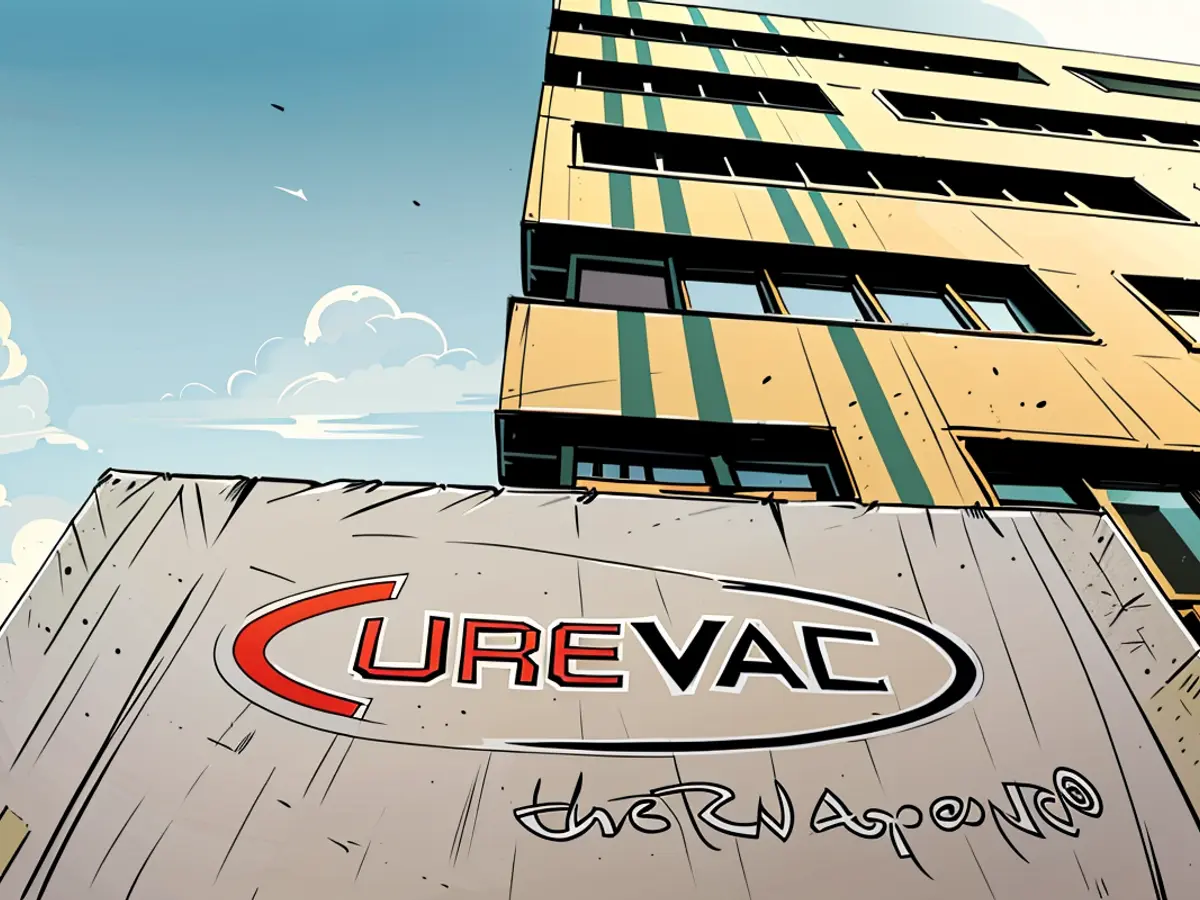CureVac buries coronavirus hopes with tough restructuring course
CureVac was a promising contender in the race for a Corona vaccine for a long time. However, the biotech company could not meet the expectations. Now, the Tübingen-based company is drawing a line in the sand and selling all rights to the vaccine candidate to the British pharmaceutical company GSK. With the proceeds and further savings, CureVac will secure its financial existence for several more years.
CureVac sells the majority stake in its research pipeline to the British pharmaceutical company GSK and secures its financial survival with this deal. The CEO, Alexander Zehnder, is also tightening the cost structure at the Tübingen company and plans to cut more jobs than initially planned. GSK takes over all rights to the mRNA Covid-19 and flu vaccine candidates from CureVac - the most advanced projects, but also the most expensive in development. CureVac receives an initial payment of over 400 million Euros, according to the company's announcement. In addition, there are performance-related milestone payments of up to 1.05 billion Euros and licensing fees possible.
CureVac can secure its financing until 2028 with this deal. Previously, the financing would have only lasted until the fourth quarter of the next year. The workforce is expected to be reduced by around 30 percent - in the spring, CureVac had already announced the reduction of 150 of the roughly 1100 global employees, which would have been about 15 percent.
He is convinced that the personnel reduction is a necessary step to "secure the long-term success of CureVac," Zehnder explained. "The new GSK agreement not only provides extensive financing but also enables us to optimize our business activities and focus on technology innovation, research and development." The focus will be on cancer and other diseases.
Vaccine did not work as hoped
CureVac and GSK have been working together since 2020 and agreed on a cooperation to develop mRNA vaccines against infectious diseases at that time. CureVac was considered one of the major hopefuls in the development of a Covid-19 vaccine, but suffered a major setback when its vaccine did not work as hoped and the project was halted. Since then, the Tübingen team has been working with GSK on an improved vaccine.
In the partnership with the pharmaceutical company, a 150 million Euro equity investment by GSK in CureVac and a one-time payment of 120 million Euros were agreed upon in 2020. According to CureVac's announcement, all financial counter-performance from the previous cooperation agreement will be replaced with the new deal. The seven percent stake of GSK in CureVac remains unchanged. The largest shareholder, according to LSEG data, is DH Capital, the investment company of SAP co-founder Dietmar Hopp, with around 31 percent. The Federal Government entered the company during the pandemic through its promotional bank KfW and still holds about 13 percent.
With the sale of the rights to the Corona and flu vaccine candidates, including one against avian flu, CureVac still has two candidates that are in the first of three clinical development phases: A cancer immunotherapy - the first study data are expected in the second half of the year - and a project in the field of gene editing. The rest is still in preclinical research and development and is therefore still many years away from market approval. By the end of 2025, CureVac hopes for two or more clinical candidates for cancer vaccines, and by the end of 2026, at least two Phase-1 studies are expected to start.
CureVac's operating costs will be reduced by more than 30% starting next year through restructuring. Personnel costs are expected to be lowered by approximately 25 million Euros. However, there will be one-time expenses of around 15 million Euros in the fourth quarter. As of the end of March, the company still had a financial buffer of roughly 300 million Euros, compared to 617.5 million Euros the previous year.
- Despite being a promising contender during the Corona crisis, CureVac's Corona vaccine candidate did not perform as hoped, leading to a halt in the project.
- The sale of CureVac's rights to its Corona and flu vaccine candidates, including one against avian flu, to GSK will help the company reduce its workforce by around 30%, allowing it to focus on cancer and other diseases.
- The Corona vaccination race has been challenging for many companies, and the economic impact of the crisis has led some, like CureVac, to downsize to secure their long-term success.








